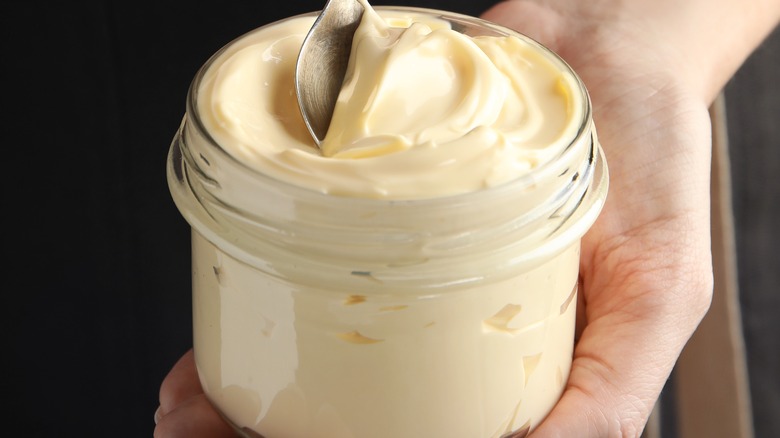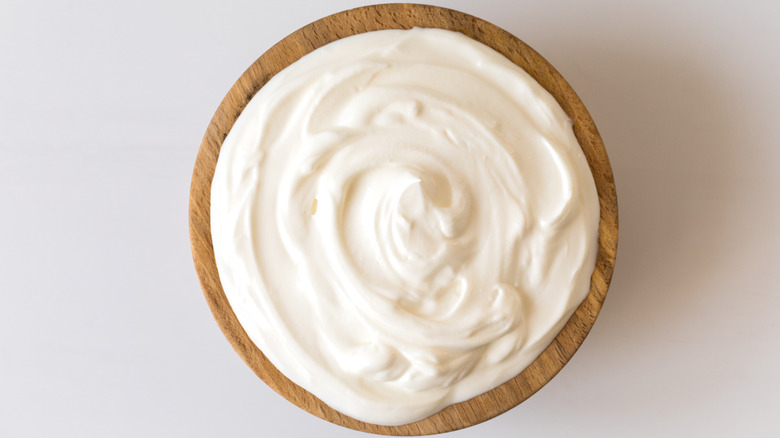Why Some People Find Mayonnaise Disgusting, According To Science
We may receive a commission on purchases made from links.
Mayonnaise is a creamy, zippy, viscous condiment made from egg yolks, oil, vinegar, and lemon juice that is often used as a spread, dip, or dressing for a range of recipes. Mayo is widely believed to have made its culinary debut in the mid-18th century when the Duke of Richelieu captured Mahón. His chef whipped up a new style of sauce in which he used olive oil instead of cream, much to the ruler's liking, according to Encyclopedia.com. From amping up chicken salads to providing delicatessen sandwiches with an added layer of flavor to dunking French fries in lieu of ketchup, mayo is a versatile, affordable relish loved by eaters around the world. It's even used as the not-so-secret ingredient in Chicago-based Portillo's famous chocolate cake, giving it its iconically moist, decadent quality, per Spoon University.
However, as with just about any food on the planet, mayonnaise has its clan of staunch haters. But this polarizing aversion often goes beyond simply not enjoying the taste of something rather than being absolutely revolted by the mere thought or sight of it. As it turns out, there is a scientific reason behind why some folks can't stand mayo.
Disgust for mayonnaise goes beyond a strong dislike
Whether you're a lifelong fan of mayo or would rather eat quite literally anything else, you've been warned about what you're about to learn. And if you do fall into the latter group of those who are vehemently opposed to mayonnaise, you're definitely not alone. William Ian Miller, author of "The Anatomy of Disgust" and law professor at the University of Michigan, shared his insights behind the anti-mayo stance with HuffPost. Miller explains that some people are extremely grossed out by mayonnaise because, well...they find its consistency similar to that of white, glutinous bodily fluids such as pus, semen, and fat, and therefore won't touch the stuff. Quite the association, huh?
Paul Rozin, a professor of psychology at the University of Pennsylvania, has studied the science of disgust for decades. He told Popular Science that disgust — a feeling of revulsion by something that is unpleasant — is, in reality, a natural human reaction to stay safe. "Disgusting foods are contaminating," he says. "If you put a little bit of it in something, other people won't eat it." Nearly 20% of people have some level of distaste for mayonnaise, mainly due to its texture, according to food sensory consultant Herbert Stone.

